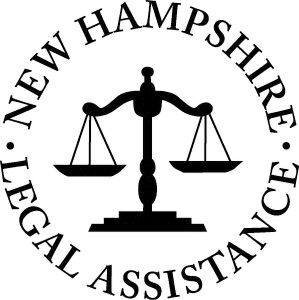Housing Protections for Victims of Domestic Violence
Victims of domestic violence face extreme challenges in the aftermath of abuse. One such unexpected area is housing. For example, a victim may be forced to flee for their safety or become unable to afford rent after an abuser is removed from the home. Victims can also face eviction or other adverse actions from their housing provider due to domestic violence. A landlord may bring an eviction for property damage or criminal activity caused by the victim’s abuser, or try to evict the victim under “one strike” lease provisions that punish anyone involved in a violent altercation regardless of who was responsible for the incident.
Thankfully, there are a number of state and federal laws that protect victims of domestic violence from housing discrimination here in New Hampshire, including the Fair Housing Act. While victims are not one of the protected classes specifically protected under the Act, the Department of Housing and Urban Development (“HUD”) and courts across the country have found that housing policies and decisions that impact victims of domestic violence can be a form of sex discrimination. The Act protects against direct acts of discrimination and prohibits policies that have a disproportionate effect on a protected class group. As most victims of domestic violence are women, courts and HUD have held that discrimination against victims of domestic violence can be unlawful sex discrimination under the Fair Housing Act.
In practice, this has led courts and HUD to intervene in housing actions that target victims of domestic violence. This includes, but is not limited to: stopping evictions targeting victims of domestic violence for noise complaints, property damage, and criminal activity related to domestic violence. Courts have further found the Fair Housing Act allowed victims to break their leases after acts of domestic violence to allow them to flee. Further, local nuisance ordinances that require landlords to evict tenants due to recurring police calls have been struck down as they have a disproportionate effect on victims who require police services.
Tenants living in subsidized housing may also be protected from adverse housing actions under the Violence Against Women Act (“VAWA”). It enshrines housing protections for victims of domestic violence in most federally subsidized housing programs in the United States. Under VAWA, victims:
Cannot be denied admission to or assistance because of violence or abuse
Cannot be evicted or have their assistance terminated because of violence or abuse
Can request an emergency transfer from a housing provider for safety reasons
Can self-certify about their abuse to access protections
Have a right to confidentiality regarding their status as a survivor
Can request a lease bifurcation from the owner of a property to remove an abuser from a lease
Cannot be coerced, intimidated, threatened, or retaliated against by housing providers for seeking or exercising their protections under VAWA
While the protections for the Violence Against Women Act are incredibly helpful to victims in subsidized properties, there are less direct protections for victims in private housing. In NH, this is where the majority of renters reside. While New Hampshire state law has included protections for victims from evictions due to domestic violence for years, the protection was challenging for victims to access because it required them to first obtain a protective order before they could access housing protections. Lifting that requirement helps victims to access safety in a way that best fits their individual circumstances.
In 2024, the New Hampshire legislature passed a new law to expand state law protections modeled after those found in VAWA. The new protections apply to victims who reside in both private and subsidized apartments and went into effect on January 1, 2025. Now victims can more easily certify their status as victims to access protections and are able to terminate their leases early and move to escape abuse. These protections will ensure that as many victims as possible can remain safe and secure in their housing despite domestic violence, sexual assault, or stalking.
NHLA’s Fair Housing project helps tenants facing housing discrimination and eviction. If you or someone you know has experienced sex discrimination in housing or is a victim facing eviction, contact NHLA’s Fair Housing project at 1-800-921-1115 to see if we can assist you.

